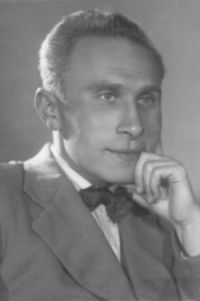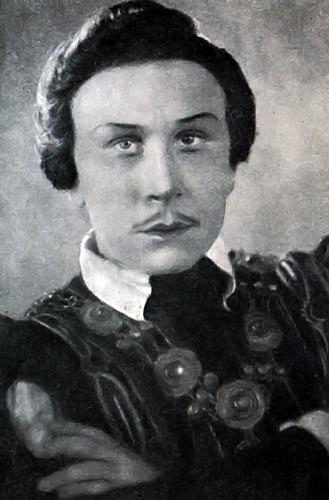Dovenman was born in Odessa on August 5th (or 7th depending on sources), 1911 into a middle-class Jewish family. During his childhood, he
sang frequently in public with his brother; throughout the city, one could see posters advertising The singing brothers.
Both sang also in a synagogue.
He first went to the opera as a child in Odessa for a performance of Werther.
Apparently the singer of Werther (Pechkovskij) took him in his arms.
After puberty, his brother lost his voice, but Dovenman's voice developed into a tenor.
His vocal talents were discovered early, however he did not originally think of a musical career.
He studied in a technical school for the food-processing industry.
The director of the factory where Dovenman began to work, having found out about his voice,
sent him to St. Petersburg for vocal studies.
First he studied in a music school,
then at the Leningrad conservatory
in the class of Sofja Akimova-Ershova – the well-known singer and spouse
of Ivan Ershov.
With Ivan Ershov, Dovenman studied interpretation.
He made his debut at the conservatory, where he sang Rodolfo and
Lenskij. His debut on stage took place at the end of 1930s at the Kirov (Mariinskij) as
Vladimir (Knjaz Igor).
After his debut, Dovenman sang Sinodal, Duca, ...
Suddenly a scandal: Dovenman, singing in a live concert on radio, did not look well enough at the rehearsal schedule
and missed a rehearsal at the Kirov. He was dismissed with the promise to be reinstated in a few months.
The Finnish war broke out, and Dovenman was drafted. He served as a soloist in a military ensemble until 1944.
Dovenman was in Leningrad during the blockade.
In 1943, the tenor singing Fenton at the Malij Opera fell ill two days before the performance, and Dovenman was asked
if he knew the part. Due to his ability of fast sight reading, he said yes. He did not leave that theater for the next 26 years.
He sang the whole tenor repertory except Otello and Canio, sometimes several evenings a week.
Once he sang Calaf in the evening, while he had sung the Astrologer in the afternoon.
Once he was asked to sing Don Carlo at the Bolshoj in a completely different edition.
He had two days to learn the new material.
In his repertoire were practically all
tenor parts from the repertory of the opera house: from the Duca and Lenskij up to
Calaf, Arrigo and German. Dovenman did not mind singing small parts such as Bomelij or Steuermann, either.
Dovenman continued singing into his 70s. His last role was Triquet.
Reference: www.opera-life.ru, © Jurij Shalyt (defunct)

